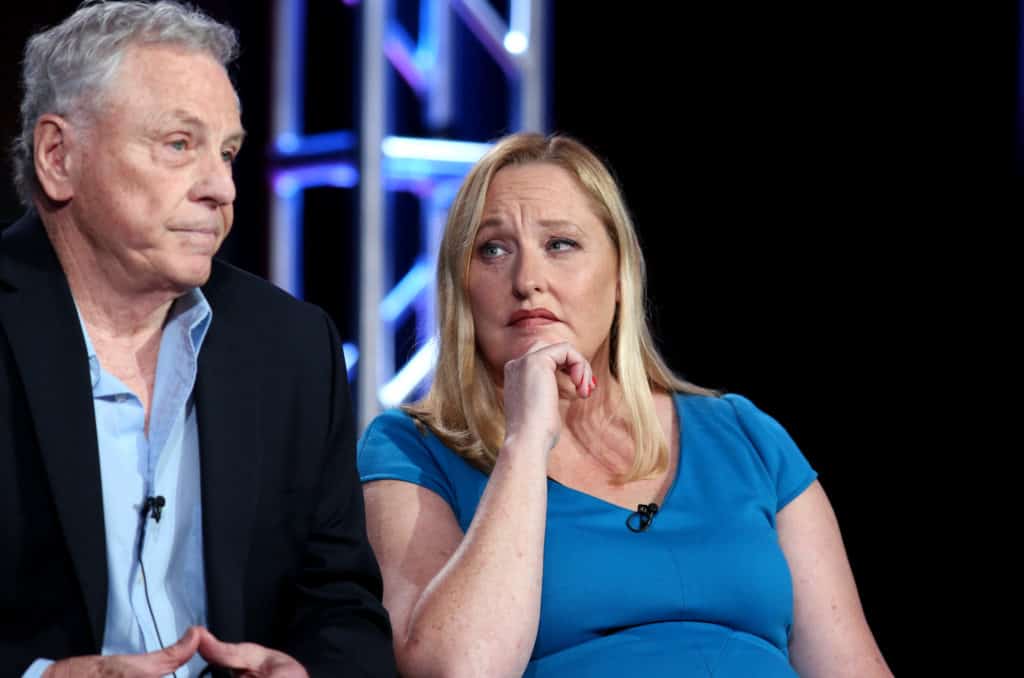The Insidious Influence of the SPLC
Jeryl Bier, Wall Street Journal, June 21, 2017

Morris Dees and Heidi Belrich of the Southern Poverty Law Center. (Credit Image: © Buchan/Rex Shutterstock via ZUMA Press)
The Washington-based Family Research Council “advances faith, family and freedom in government and culture from a Christian worldview,” according to its profile on the website of GuideStar, the nation’s premier philanthropic rating agency. GuideStar gives the FRC a “silver” rating for demonstrating a “commitment to transparency.” But the top of the profile page also declares: “This organization was flagged as a hate group by the Southern Poverty Law Center.”
{snip}
Aided by a veneer of objectivity, the SPLC has for years served as the media’s expert witness for evaluating “extremism” and “hatred.” But while the SPLC rightly condemns groups like the Ku Klux Klan, Westboro Baptist Church and New Black Panther Party, it has managed to blur the lines, besmirching mainstream groups like the FRC, as well as people such as social scientist Charles Murray and Somali-born Ayaan Hirsi Ali, a critic of Islamic extremism.
A clear illustration of the SPLC’s pervasive and insidious influence is the March riot at Middlebury College, where Mr. Murray had been invited to speak. “The SPLC is the primary source for the protesters at my events,” Mr. Murray told me. “It is quotes from the SPLC, assertions by the SPLC that drive the whole thing.”
Mr. Murray’s politics are libertarian, but the SPLC labels him a “white nationalist.” In reporting on the Middlebury fracas, numerous news organizations repeated the SPLC’s characterization without noting it was false. The AP even put it in a headline: “College Students Protest Speaker Branded White Nationalist.”
{snip}
Even when condemning far-left groups, the SPLC shows an odd deference. Describing black separatists, the SPLC avers that “much black racism in America is, at least in part, a response to centuries of white racism,” and “the racism of a group like the Nation [of Islam] may be relatively easy to understand.”
{snip}
The SPLC’s work arguably contributes to the climate of hate it abhors — and Middlebury isn’t the worst example. In 2012 Floyd Lee Corkins shot and wounded a security guard at the Family Research Council’s headquarters. Mr. Corkins, who pleaded guilty to domestic terrorism, told investigators he had targeted the group after learning of it from the SPLC’s website. The SPLC responded to the shooting with a statement: “We condemn all acts of violence.”
Last week the SPLC found itself in the awkward position of disavowing the man who opened fire on Republican members of Congress during baseball practice. “We’re aware that the SPLC was among hundreds of groups that the man identified as the shooter ‘liked’ on Facebook,” SPLC president Richard Cohen said in a statement. “I want to be as clear as I can possibly be: The SPLC condemns all forms of violence.”
{snip}
As long as journalists serve up what the SPLC dishes out, the group has little to gain by directly engaging its critics. (It did not respond to three inquiries for this article.) Now the GuideStar partnership may further burnish its credentials as an unbiased arbiter of hate.















